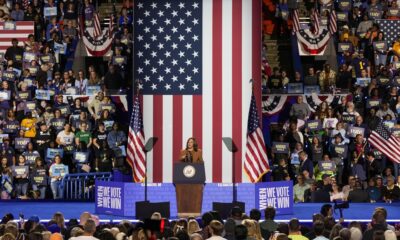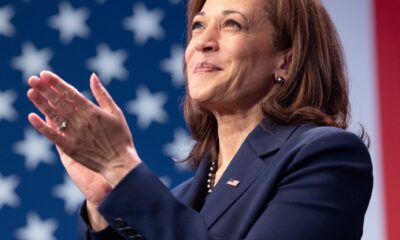Featured
Get Ready for the Detroit Democratic Debate
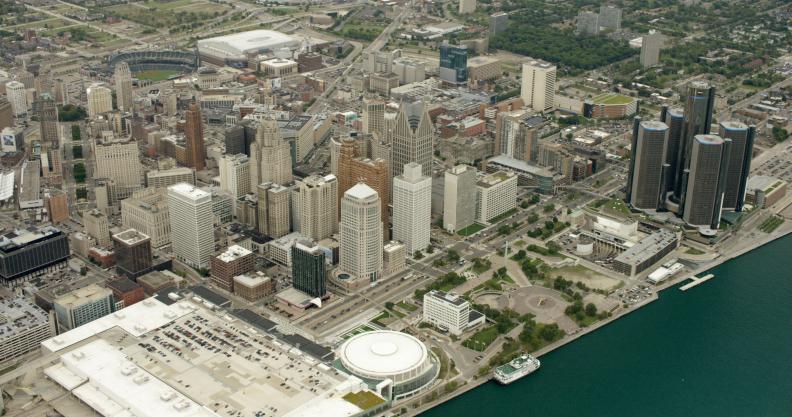
Let’s learn from Miami, scene of the first debate for 2020 Democratic presidential candidates. Fast forward almost one month, we’ve marinated on the first debate and now we’re previewing the next debate televised by CNN in Detroit on July 30 and 31.
The Miami debate was a nod to Latinx voters. We hope that Detroit, with its 80-plus percent African American population, is a wink to Black voters. However, the wink or nod could end up being directed at unions. Either way, we should watch the next debate. We are not silent observers. We need you to make sure candidates know we are watching by posting comments on social media. The simple truth is that we will get out of this election only what we put into it.
Another takeaway from Florida is that the debate format matters. Unlike the first debate televised by NBC News, CNN will make time for opening statements at the start of the second debate. It is helpful for each presidential candidate to explain why she or he is running. That’s the job of a good opening statement. Plan to be on time, so you don’t miss key introductions. We should compare notes on opening statements on our favorite social channels.
Even veterans of the campaign trail have trouble just naming the candidates. Remembering policy positions are tougher. And it is a full-time job keeping up with policy announcements. How can we possibly make educated, value-based fundraising or other choices about a field of 20-plus presidential candidates without an almost overwhelming amount of information and research? Educating voters about candidates is the core function of a debate. It is the movie version of hours of reviewing speeches and issue papers on candidates’ websites.
In the Motor City, debaters will be penalized for too many interruptions. According to the CNN debate rules, “a candidate who consistently interrupts will have his or her time reduced.” This may mean that candidates at the edge of the stage that veteran debate expert Bob Schrum called “outliers,” such as Mayor Bill de Blasio and newbie to the debate stage Montana Gov. Steve Bullock, will have to contain their efforts to “bash their way into conversations.”
Fortunately, we have a little more than six months to get to know the 20-plus candidates before the presidential primaries begin. And we have 11 more primary debates. Expect more changes for the third debate televised on ABC and Univision in Houston at an Historically Black College and University (HBCU). With a little push from our favorite social media platforms, we can make sure that the debates get better and better.
We will also hear from a new voice. After the last debate, one of the 20 candidates that qualify for the stage in Miami Rep Eric Swalwell (D-Calif.) dropped out of the presidential race due to low fundraising and polling numbers. Gov. Bullock will take Swalwell’s place at a podium in Detroit.
Now let’s address the lesson’s learned from Miami. Lesson #1: We must support a candidate with donations. Even a few dollars help candidates qualify for a stage that requires increasingly higher polling and donor thresholds with each upcoming debate. Candidates qualified for the first debate with “65,000 donors and one percent in three polls” and for the second debate the standard was increased to include “a minimum of 200 donors per state in at least 20 states.” The third debate requires candidates to “register 2% in at least four polls and have 130,000 unique donors.”
Lesson #2: We are watching and involved. We cannot sit out any part of the race for the White House. We have too much to lose. Think about Trump’s attacks on our women of color leaders, such as Democratic Reps. Alexandria Ocasio-Cortez (NY), Ilhan Omar (Minn.), Ayanna Pressley (Mass.) and Rashida Tlaib (Mich.). In many ways, this election is a referendum on hate. We cannot let hate win. (Start today, by signing our petition taking a stand against the President’s hate speech.)
Lesson #3 is easy: Speaking Spanish – a few words sprinkled here and there – is not informing voters. Many panned the “Hispandering” as it was widely called. Candidates should not even imagine the equivalent of “speaking Spanish” in Detroit. Whatever it is, nobody should try it.
Now a Spanish-speaking moderator is a different story. Jose Diaz-Balart, who “lives and works in Miami,” not only asked questions for the Spanish-language network Telemundo but also brought a new perspective to the debate.
On the first night, Diaz-Balart asked three candidates – Mayor de Blasio, Congressman Delaney and Governor Inslee – how they would address inequality. The answers ranged from the minimum wage to support for unions and paid sick leave. But the moderator directed a real debate on jobs around policy priorities with candidates contrasting each other’s positions.
This discussion about jobs was a high point in the debate. The Democratic National Committee deserves credit for stipulating a more diverse group of moderators as advocates demanded. Earlier this year, the Democratic Party made a commitment to advocates that a woman and a person of color would moderate in each of the 12 primary debates.
Both NBC and CNN met the letter of the request. NBC’s moderators included Lester Holt, Suzanna Guthrie, Diaz-Balart, Chuck Todd and Rachel Maddow. CNN followed the model with their journalists and moderators Dana Bash, Don Lemon and Jake Tapper.
Now it is time to expand on this model to include a moderator who is a Black female journalist. As the most reliable and loyal Democratic voters, we need to see our perspective at the powerful debate moderators’ tables. “According to Time’s Up, 86% of the debates in the past two decades had no women of color as moderators.”
We have 10 more debates. The next one is at an HBCU, so let’s start pushing for a sistar moderator today.
Holli L. Holliday is president of Sisters Lead Sisters Vote, a nonprofit c4 organization for, by and of black women.

-

 Black History11 months ago
Black History11 months agoThe untold story of a Black woman who founded an Alabama hospital during Jim Crow
-

 Featured10 months ago
Featured10 months agoA Crowd of Iowans Showed Up To Hear Dr. King in 1960. Would He Draw the Same in 2024?
-
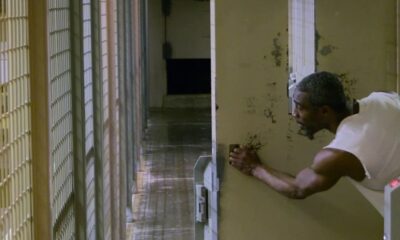
 Featured7 months ago
Featured7 months agoArkansas Sheriff Who Approved Netflix Series Says He Stayed ‘In His Lane’
-
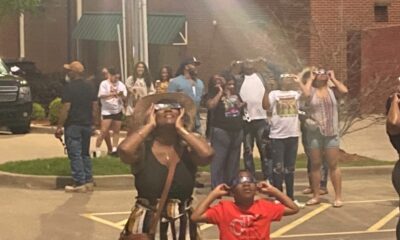
 News7 months ago
News7 months agoMillions In the Path of The Total Solar Eclipse Witnessed Highly Anticipated Celestial Display
-
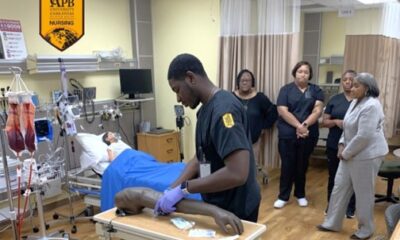
 HBCUS7 months ago
HBCUS7 months agoSenator Boozman Delivers $15 Million to Construct New UAPB Nursing Building
-

 Featured4 months ago
Featured4 months agoCalifornia Is the First State to Create A Public Alert for Missing Black Youth


